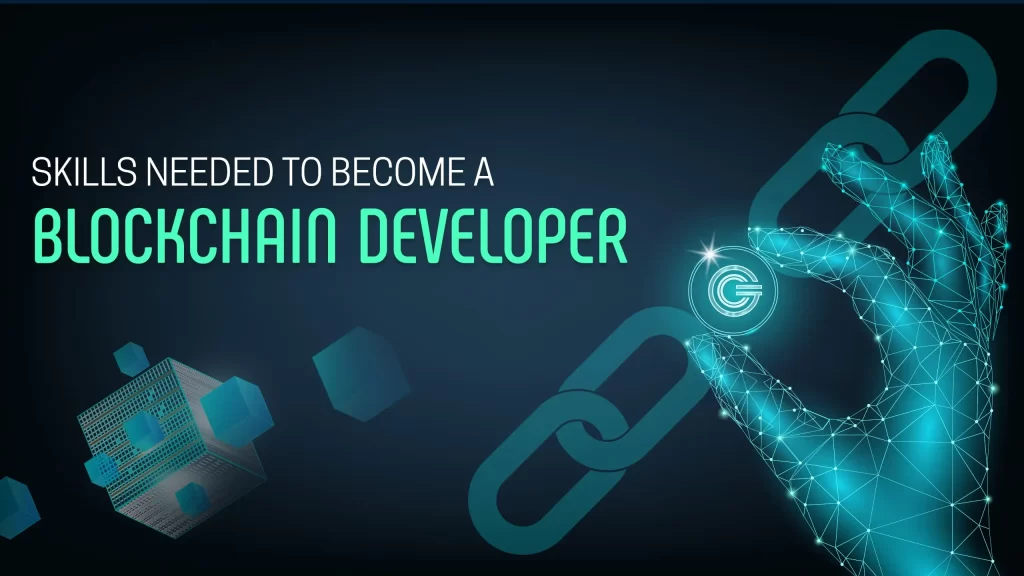
In the ever-evolving realm of technology, blockchain has emerged as a transformative force with the potential to reshape industries and redefine the way we conduct transactions. As the demand for blockchain solutions continues to grow, so does the need for skilled professionals who can navigate the intricacies of this revolutionary technology. In this article, we will explore the key skills required to become a proficient blockchain developer.
1. Solid Understanding of Blockchain Fundamentals:
To embark on a career as a blockchain developer, a solid understanding of the fundamentals is paramount. This includes a grasp of the decentralized nature of blockchain, distributed ledger technology, consensus mechanisms, and cryptographic principles. Developers must comprehend how transactions are added to the blockchain, how consensus is achieved, and the significance of immutability in maintaining the integrity of the ledger.
2. Programming Languages:
Proficiency in programming languages is the cornerstone of blockchain development. Depending on the blockchain platform, developers may need to be adept at languages such as:
- Solidity: Widely used for Ethereum smart contract development.
- Go (Golang): Commonly used for Hyperledger Fabric.
- Java, C++, or Python: Employed in various blockchain platforms and protocols.
A versatile developer capable of adapting to different languages and platforms will have a broader range of opportunities.
3. Smart Contract Development:
Smart contracts are self-executing contracts with the terms of the agreement directly written into code. A blockchain developer must be skilled in creating, deploying, and managing smart contracts. This involves a deep understanding of the business logic, security considerations, and the programming language specific to the blockchain platform being used.
4. Understanding of Blockchain Platforms:
Blockchain is not a one-size-fits-all technology. Different platforms offer distinct features and cater to specific use cases. Developers should be familiar with major blockchain platforms such as Ethereum, Hyperledger, Binance Smart Chain, and others. Knowing the strengths, weaknesses, and unique features of each platform enables developers to choose the most suitable one for a given project.
5. Decentralized Application (DApp) Development:
Decentralized applications leverage blockchain technology to provide secure, transparent, and tamper-proof solutions. Proficiency in DApp development involves knowledge of front-end technologies like HTML, CSS, and JavaScript, coupled with expertise in integrating the application with blockchain protocols. Understanding the intricacies of user interface (UI) design and user experience (UX) is crucial for creating user-friendly DApps.
6. Cryptography Skills:
Cryptography is the bedrock of blockchain security. Developers should have a solid understanding of cryptographic principles to implement secure and tamper-resistant solutions. Concepts such as public-key cryptography, hash functions, and digital signatures play a pivotal role in securing transactions and data on the blockchain.
7. Consensus Algorithms:
Consensus algorithms are mechanisms that ensure agreement among nodes in a decentralized network. Developers need to understand different consensus algorithms like Proof of Work (PoW), Proof of Stake (PoS), and Practical Byzantine Fault Tolerance (PBFT). The choice of consensus algorithm impacts factors like security, scalability, and energy efficiency.
8. Version Control/Git:
Git is an essential tool for version control, enabling developers to manage changes, collaborate with teams, and track the evolution of a project over time. Proficiency in Git ensures efficient collaboration, code management, and the ability to roll back changes if necessary.
9. Knowledge of API Integration:
Blockchain development often involves integrating applications with external services and APIs. A developer should be adept at working with APIs to enable seamless communication between different components of a blockchain ecosystem.
10. Understanding of Token Standards:
Many blockchain projects involve the creation of tokens, representing assets or functionalities within the ecosystem. Familiarity with token standards like ERC-20 (Ethereum) or BEP-20 (Binance Smart Chain) is crucial for developers creating and managing tokens on specific platforms.
11. Security Awareness:
Security is a paramount concern in blockchain development. Developers should be aware of common vulnerabilities and best practices to mitigate potential threats. This includes safeguarding against issues like reentrancy attacks, overflow vulnerabilities, and ensuring the robustness of smart contracts.
12. Problem-Solving and Analytical Skills:
Blockchain development often involves solving complex problems and addressing novel challenges. Strong analytical and problem-solving skills are essential for troubleshooting, optimizing code, and devising innovative solutions to emerging issues.
13. Continuous Learning and Adaptability:
The blockchain landscape is dynamic, with constant advancements and new developments. Successful blockchain developers are committed to continuous learning, staying abreast of the latest trends, updates, and emerging technologies in the field.
14. Communication and Collaboration Skills:
Effective communication is key for any development team. Blockchain developers need to articulate complex technical concepts to non-technical stakeholders, collaborate with team members, and contribute to a cohesive working environment.
Conclusion
Becoming a proficient blockchain developer requires a multifaceted skill set that encompasses technical expertise, problem-solving acumen, and a commitment to ongoing learning. As blockchain technology continues to gain traction across industries, individuals equipped with these skills will find themselves at the forefront of innovation, contributing to the evolution of decentralized solutions that have the potential to reshape the future of business and technology.
